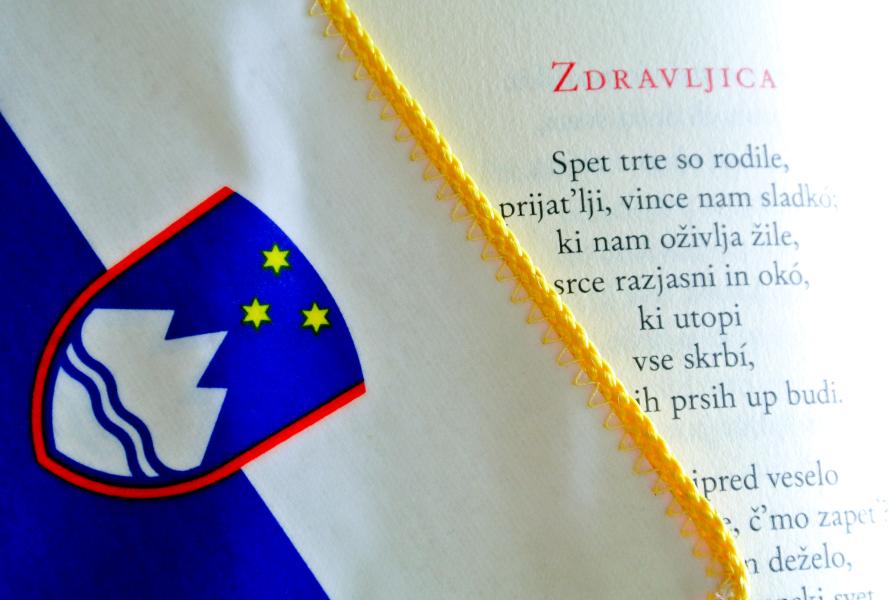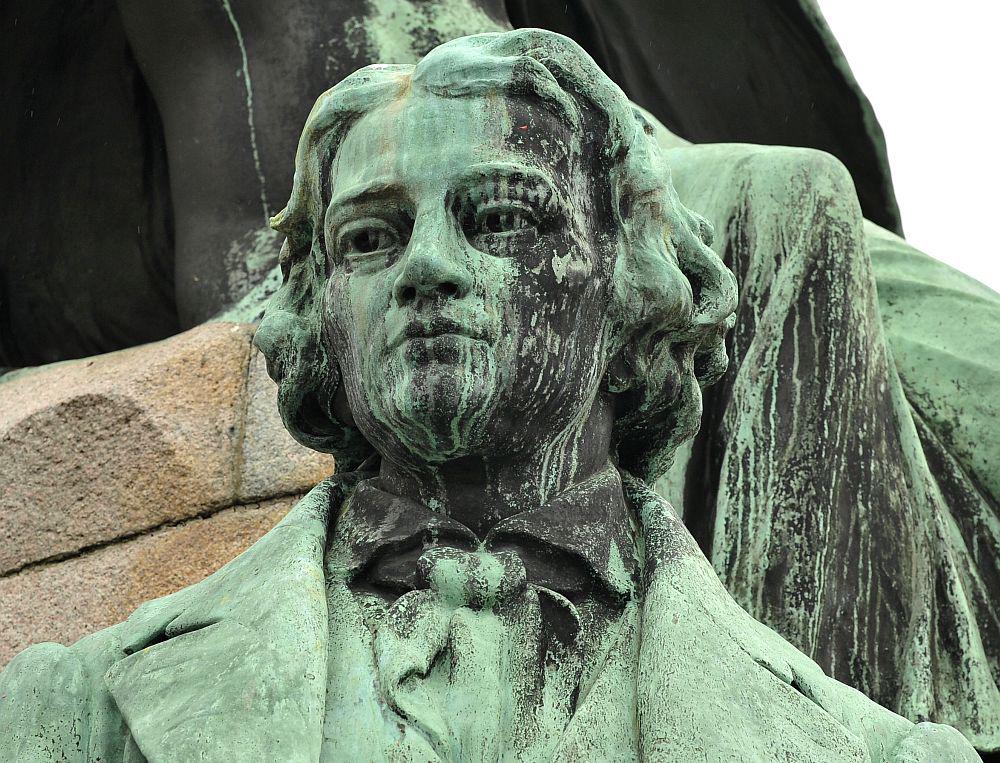

Adopted in the years leading up to Slovenia’s independence, Zdravljica ("The Toast") was quickly embraced by the Slovenian people as their national anthem. It came to symbolize the young nation’s hope and struggle for recognition as an independent country. Appropriately, Zdravljica has its origin in another era marked by call for national emancipation: the middle of the 19th century.
Zdravljica was written by the Slovenian poet France Prešeren in 1844. The work takes the form of a ceremonial toast, but contains an impassioned plea for the awakening of Slovenian national consciousness and for solidarity among Slavs in Austria-Hungary. Still, its central message is one of peace – a universal call for understanding among different nations. And much of the poem is an optimistic celebration of wine; even its stanzas are shaped like cups of wine.
Zdravljica was first published in a newspaper in 1848. Its goodwill and pacifism did not impress the Hapsburg authorities, who interpreted the poem as a call for the Slavs to revolt and resented its advocacy of a single Slovenian province. Therefore, imperial Vienna censored the poem on several occasions. Prešeren tried to work around the ban by eliminating some of its most controversial passages, but he ultimately decided that the cuts would be too drastic and omitted the work from his collection of poems.
Despite – or perhaps because —of the official pressure, Zdravljica became a popular patriotic poem, whose influence spread with the rise in literacy. What it lacked for many years was musical accompaniment, but after several failed attempts, composer Stanko Premrl successfully put it to music. Immediately after its 1917 premiere, it immediately became a huge hit.
For a long time, the song had no official status, but it was frequently sung in times of crisis and was widely used by the Partisan resistance during World War II.
In 1989, when Slovenia began the process of withdrawing from Yugoslavia, the seventh stanza of Zdravljica was adopted as its anthem, and with independence in 1991, the song became the national anthem of a new European country – and one of the most pacifist anthems in the world.

































































